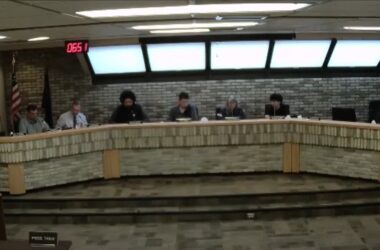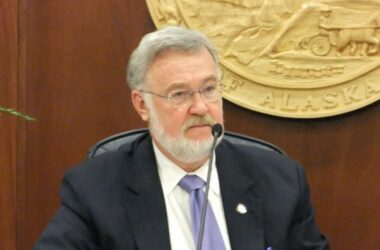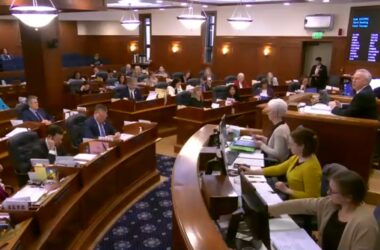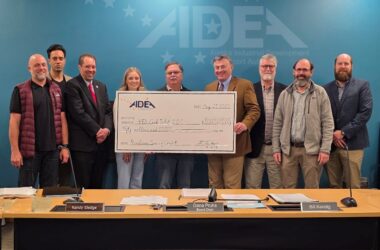The Kenai Peninsula Borough Assembly has unanimously approved a key change to borough code that governs the use of public resources in elections, aiming to eliminate confusion and align local rules with Alaska state law.
Passed at the May 20 meeting, Ordinance 2025-07 amends Borough Code 4.10.100 to explicitly require a specific appropriating ordinance before public money, personnel time, or resources—such as facilities, supplies, or equipment—can be used to inform voters about ballot propositions. The change mirrors Alaska Statute 15.13.145, which mandates similar requirements at the state level.
Assembly Member Tyson Cox, who sponsored the ordinance, said the goal was to replace a pattern of legal workarounds with a more consistent, transparent approach.
“So instead of making [us] require an exception to code, what this will do is it’ll change it to mirror the state code requiring an ordinance to use public money on ballot propositions,” Cox said. “Which, for the public, that just means we still have to do an ordinance and have an agreement by the assembly to use any kind of public monies. For ballot propositions.”
Cox’s supporting memo to the Assembly noted that under the current code, the borough often had to pass “notwithstanding” exceptions to allow for even basic informational outreach about ballot measures. He pointed to past examples like Ordinance 2024-16 and five others dating back to 2017, which each required temporary exceptions to share educational materials with the public.
“The need to consistently enact a ‘notwithstanding exception’ to KPB Code indicates that the code may need to be amended,” Cox wrote in the April 3 memo. “This ordinance will amend KPB code to accomplish the same outcome as before, but without needing a ‘notwithstanding exception’ to do so.”
The amended section, 4.10.100(a), now prohibits the use of public resources “to inform voters about pros, cons, or potential impacts of an election concerning a ballot proposition” unless such use is “specifically appropriated by ordinance” in accordance with state law.
The ordinance was introduced on April 15 and received a public hearing before the unanimous vote. It takes effect immediately.






